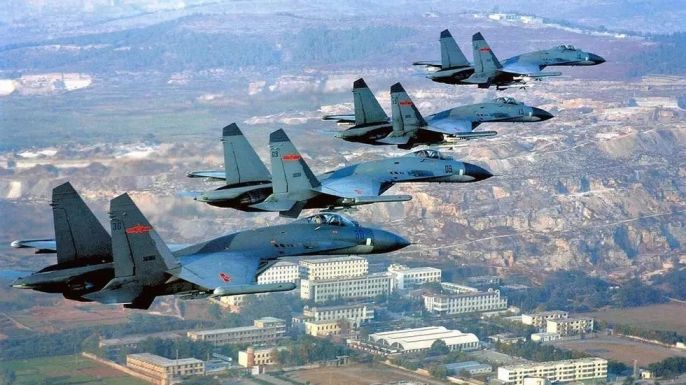The island’s defence ministry also said that four Chinese warships conducted combat patrols in the Taiwan Strait, prompting an immediate response from the country’s air force on Sunday.
After 37 Chinese military aircraft entered the country’s air defence zone, some of them continued on to the western Pacific, marking the second time in less than a week that the country has detected renewed Chinese military action.
China, which claims democratic Taiwan as part of its territory, has been frequently sending military planes into the airspace around the country for the previous three years.
In a brief statement, the country’s defence ministry reported spotting 24 Chinese air force jets on Sunday at 0600 GMT, including J-10, J-11, J-16, and Su-30 fighters, and H-6 bombers.
It did not say exactly where the planes went, but it did say that 10 of them had flown over the median line separating the two sides of Taiwan Strait, which had traditionally operated as an unofficial barrier.
China is reacting over Taiwan’s ties with Europe
China has repeatedly crossed that line since last year, claiming it is not recognised. China issues a warning to Europe about establishing formal connections with Taiwan before a minister travels there
Without providing specifics, the ministry also noted that four Chinese naval vessels were conducting “joint combat readiness patrols.” Using language typical of its responses to similar Chinese activity, the country announced it had sent up its own fighters and positioned ships and land-based missile systems to keep watch.
Requests for feedback from the Chinese Ministry of Defence were not met with an instant response. Regarding the flights on Thursday, it has made no statement. China has claimed in the past that such missions are meant to prevent “collusion” between Taiwan and the United States, the island’s primary overseas ally and supplier of armaments.
After Taiwanese President Tsai Ing-wen visited the United States in April, China responded by staging military exercises in the region. The government of Taiwan has stated that only the people of the country can make decisions on the future of the island, and that it will not accept China’s claims of sovereignty over Taiwan.
China has never given up the use of force to subjugate Taiwan, which will hold a presidential election and a legislative assembly in January. Vice President William Lai of the country promised on Sunday to “stabilise the peaceful status quo in the Taiwan Strait” in a video speech to supporters on the Taiwan-controlled Matsu islands near the Chinese coast, according to his campaign headquarters.
Lai is the candidate of the current government’s Democratic Progressive Party. Term constraints prevent Tsai from seeking reelection. Tsai has offered negotiations with China on multiple occasions, but has been rejected each time because Beijing sees her and her party as separatists.
The unofficial link between Washington and Taipei is managed by American Institute in Taiwan chair Laura Rosenberger, who visited the country last week to see all three presidential contenders. This has also resulted in increasing influence of America on the country.
To read our article about “Saudis ignore Western concerns over relationship with China” click here.
